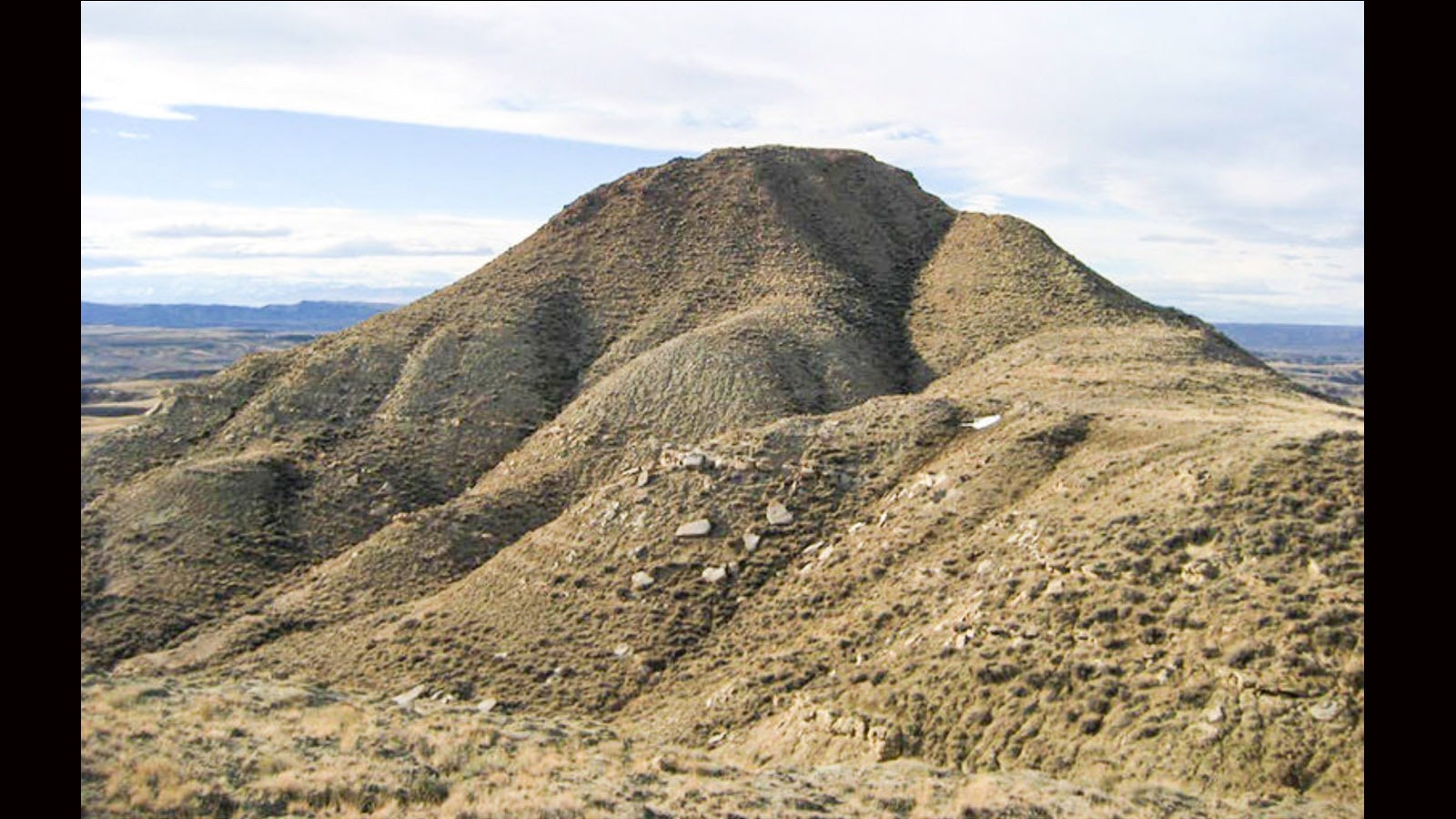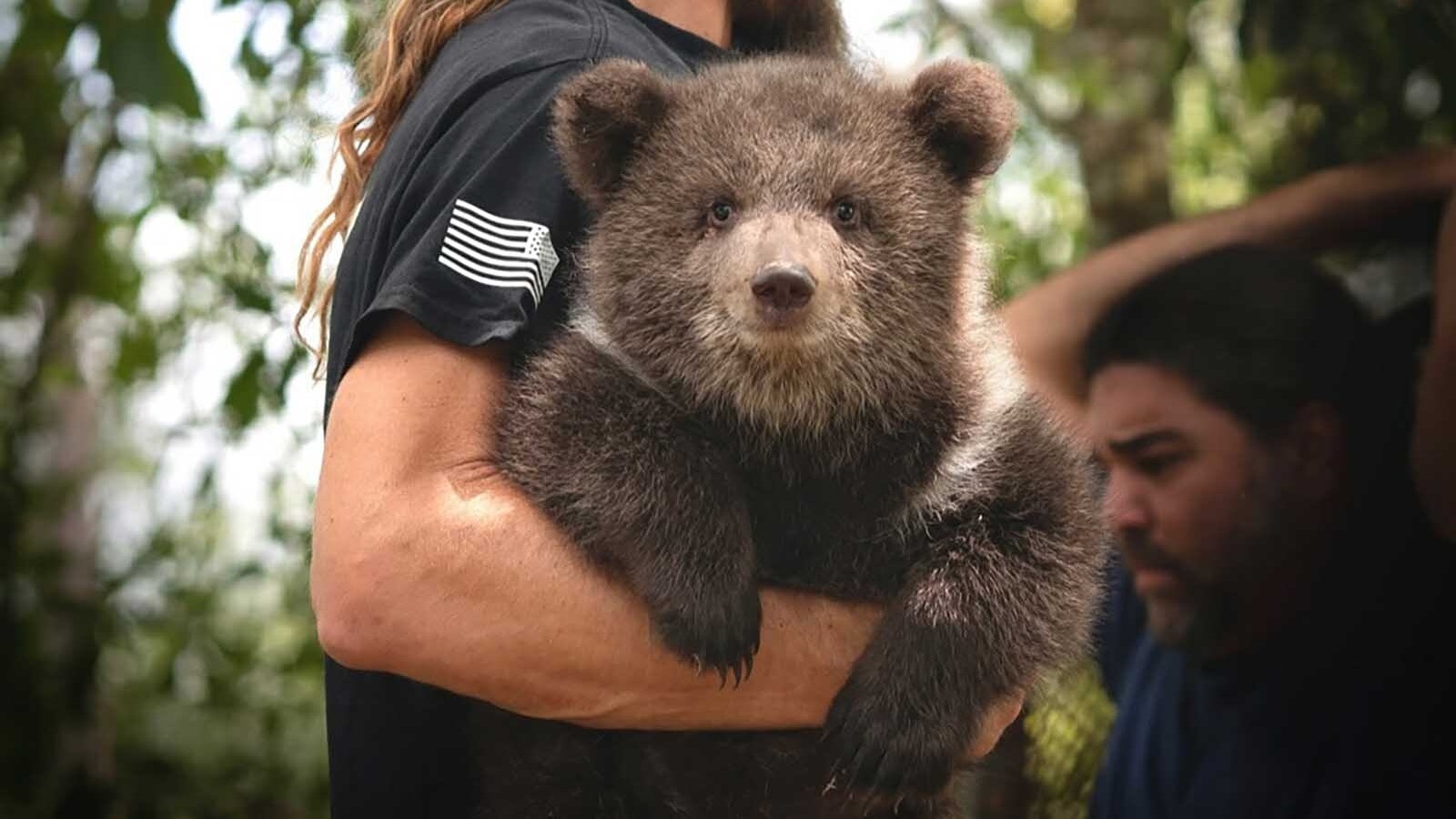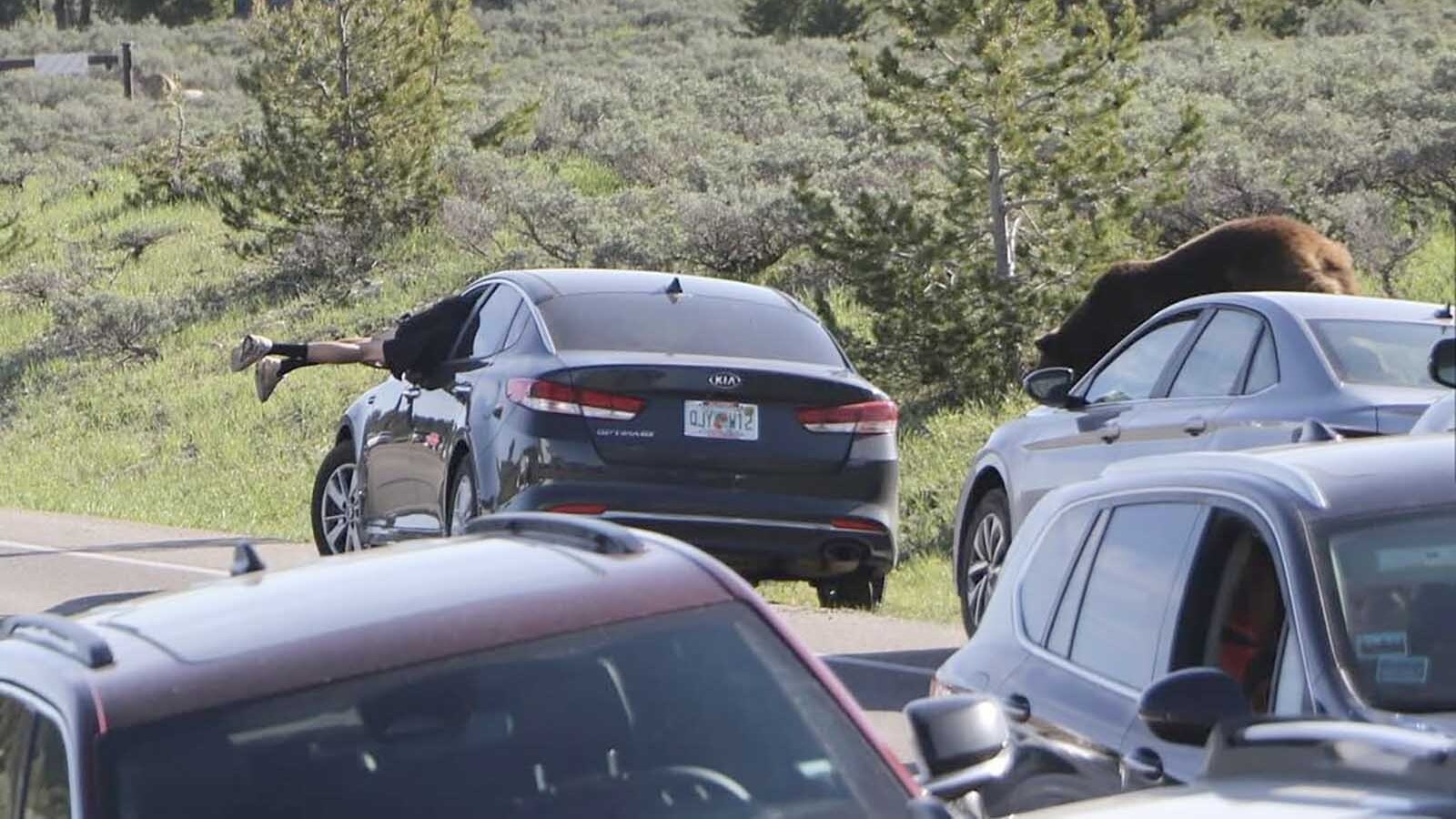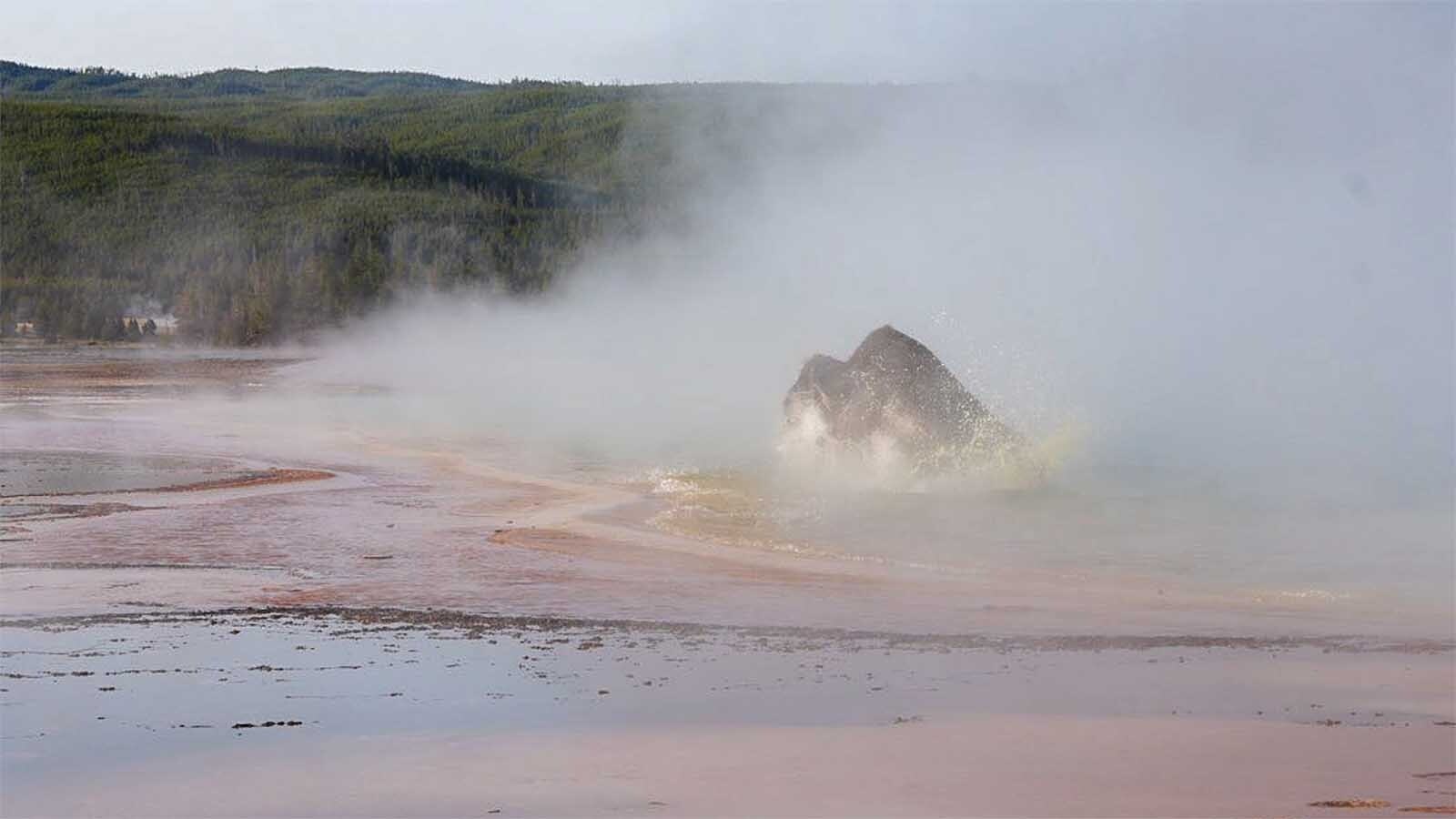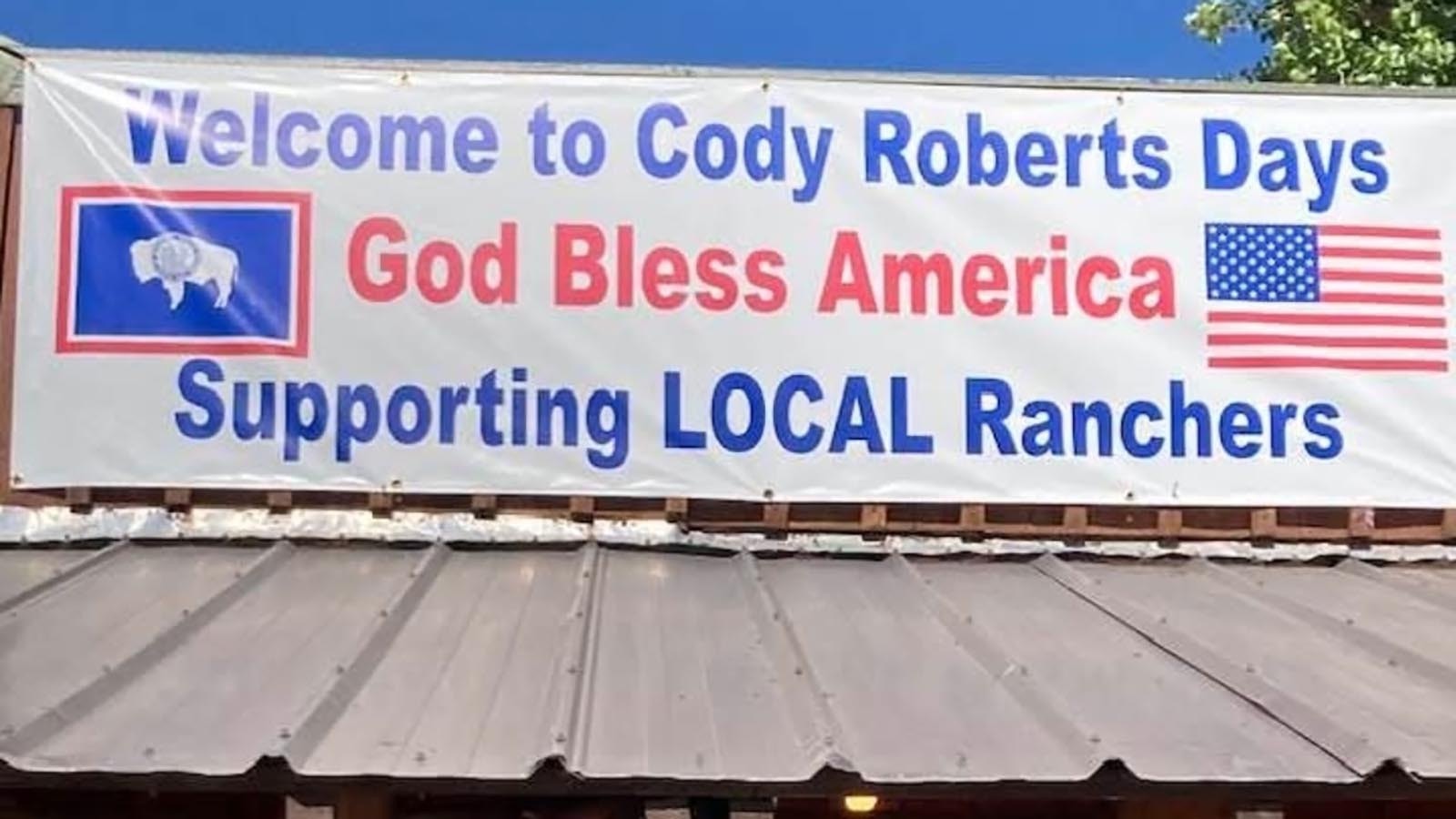By CJ Baker, Powell Tribune
Although Park County commissioners want a pair of local buttes to continue to be known as “Squaw Teats,” a state board may not.
At a May 19 meeting, the Wyoming Board on Geographic Names did not formally take a position on a proposed renaming of the buttes. However, the board’s leaders did pledge to support a broader effort to remove the name “squaw” from not just the Park County formation, but from all of the locations in the state that include the word.
“This name is being changed across the country,” said Shelley Messer, the Wyoming Board on Geographic Names’ executive director.
Montana, South Dakota, Idaho and other states have already erased the word ‘squaw’ from their maps, and state Rep. Andi Clifford, an Ethete Democrat and a member of the Northern Arapaho tribe, told the board she’s drafted legislation that would do the same in Wyoming.
“It may be a two, three, five-year effort with this renaming,” Clifford said, “but we’re not going to give up, because it is offensive.”
She said the conversation was kickstarted in June 2020, when Powell resident Tyler Kerr called for renaming the Squaw Teats. The formation is located about 15 miles east of Meeteetse in Park County’s southeastern corner, on Bureau of Land Management property.
The area was originally referred to as “Squaw Buttes” in a 1906 U.S. Geological Survey publication, according to research by the federal government, but “Squaw Teats” became more common starting around 1938.
Kerr says the moniker “is derogatory, both to women and to Native Americans.” In a formal proposal to the U.S. Board on Geographic Names last year, he suggested renaming the peaks as “Crow Woman Buttes.”
That began a lengthy review process, in which the national naming board — which will have the final say on the name — seeks input from a variety of stakeholders.
Park County commissioners were the first to weigh in, unanimously voting to support “Squaw Teats” in August. Commissioners said “the history and heritage of Park County is important and must remain the same today and tomorrow.”
Director Messer called the opposition surprising, but noted the commission also opposed a proposal to rename Yellowstone National Park’s Hayden Valley and Mount Doane.
Speaking to the state board, Crystal C’Bearing of the Northern Arapaho Tribal Historic Preservation Office suggested the issue could be commissioners “just don’t have the information or the history of why these names are offensive.” C’Bearing said that’s what she’s found as she’s worked to change the names of Squaw Mountain and Mount Evans in Colorado.
“I think we just need to do our part,” added Clifford, who is C’Bearing’s sister. The state representative said she plans to reach out to her fellow lawmakers in the Park County area to start a conversation and hopefully build support for her bill.
One member of the state board felt it would be helpful for Park County commissioners to have information about the origin and historical use of the word squaw, while member Dan White offered that “this is not a new topic, anywhere.”
“I mean, I’m sorry, the county commissioners should be up on it a little bit more than that,” White said. “I don’t think they need that much education.”
Messer agreed, saying other states had eliminated the word from place names decades ago.
While “squaw” has increasingly been seen as derogatory in recent years, there remains debate over its origins, according to multiple scholars and sources; some believe it was from an Algonquian word for woman while others say it came from a Mohawk word for vagina. C’Bearing told the board “it was originally created to offend native women.”
Particularly amid a nationwide effort to combat the disproportionately high number of Indigenous women who are murdered or go missing, “it seems only right to change those [squaw] names,” C’Bearing said, “because that gives the stereotype that native women are not respected.”
Board chairman Herb Stoughton of Cheyenne said, over the years, the panel has heard proposals on a number of controversial names, including some that contained the N-word.
“This is just a continuation that’s been going on since before 2000,” Stoughton said. “We’re just now getting into the Native American names that are considered not sensitive.”
The chairman told Clifford he thought the board would support her proposal to change squaw-related place names “in any way we can.” Messer said she’d help however she could, too.
Clifford told the panel she hopes to get the Legislature’s Select Committee on Tribal Relations to sponsor the bill.
“I already know the pushback we’re going to get when we talk about, on the national level, the critical race theory and all of that going on,” she said.
As for Squaw Teats and Kerr’s proposal to rename them as Crow Woman Buttes, the Wyoming Board on Geographic Names tabled the discussion until its next meeting in November. One reason for a delay is that tribal governments and the Bureau of Land Management have yet to offer their opinions; Messer said the U.S. board will likely want to wait until hearing from the BLM before making a decision.
How long it might take the agency to weigh in is unclear. For example, in 2017, a group of Native American tribes proposed renaming Yellowstone’s Hayden Valley and Mount Doane as Buffalo Nations Valley and First People’s Mountain, respectively. The National Park Service has yet to weigh in.
However, Messer suggested things may move forward more quickly under the Biden administration. From talking to people on other boards, “federal agencies are feeling more free to make a voice on those things under the current administration than they were over the last four years,” she said.
There is no flood of proposed name changes in Wyoming, as Squaw Teats is the only proposal pending before the state board.
“It’s been a very slow year,” Messer said.
The board’s next meeting is set for Nov. 17.

